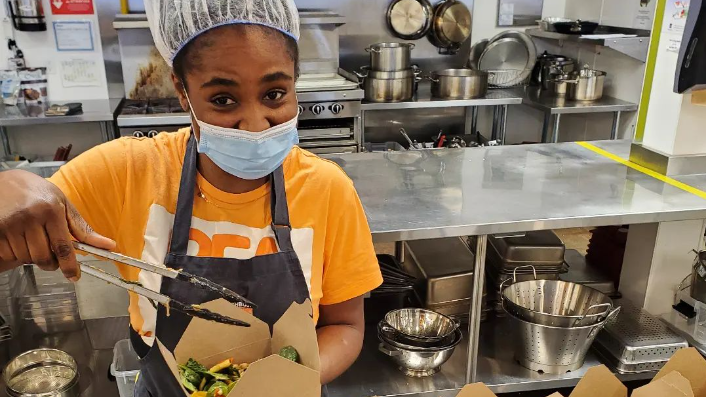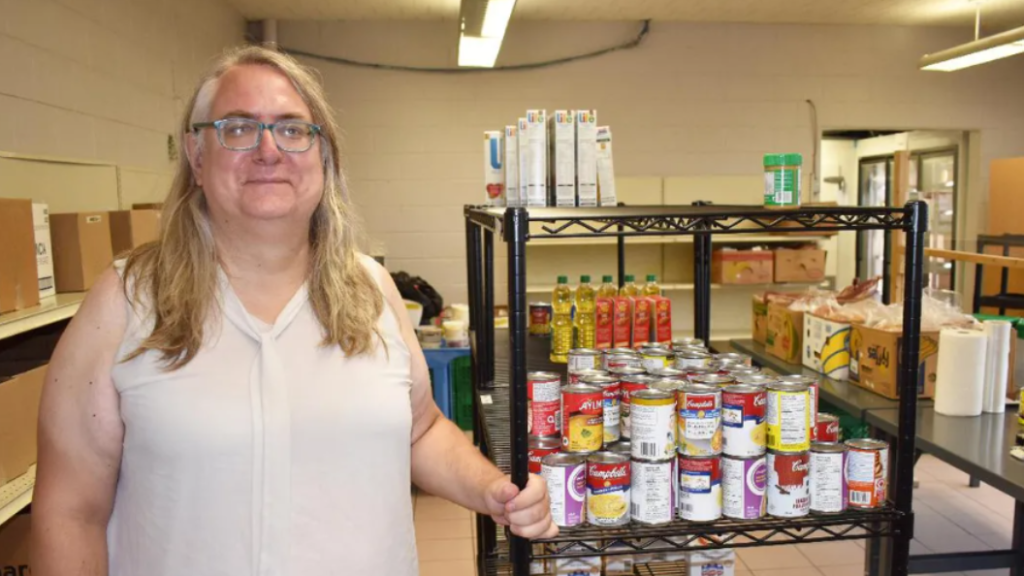During Pride Month and every month, Food Banks Canada is committed to upholding the values of diversity, equity, inclusion, and accessibility in our work environments and throughout the food bank network.
With the rise in anti-trans hate and anti-2SLGBTQI+ legislation, we understand that it is critical to continue advocating for a safer and more inclusive Canada.
Part of addressing the persistent inequalities faced by 2SLGBTQI+ communities is by making a meaningful and ongoing commitment to cultural safety.
Led by our Cultural Safety Committee, Food Banks Canada is dedicated to providing safe spaces for discussion that are accessible, inclusive, equitable, welcoming, and free of discrimination regardless of age, race, gender expression, gender identity, sexual orientation, levels of ability and all other diverse identities.
With a national network consisting of food banks, agencies, and provincial associations, Food Banks Canada is also proud to be part of a community that is providing safer spaces for the 2SLGBTQI+ to access healthy food and support.
Advancing 2SLGBTQI+ rights and food security
According to the 2021 Statistics Canada Census, transgender women (12%) and transgender men (12.9%) experience higher rates of poverty, a leading cause of food insecurity, compared to cisgender men (7.9%) and cisgender women (8.25%).
Visiting a food bank can be a shameful experience for many, but for the trans people who are more likely to experience food insecurity, there is an additional layer of complication as they have a long history of discrimination.
That’s why the trans and non-binary food bank program hosted by the Neighbour to Neighbour Centre in Hamilton, Ont. is so important. The program offers food bank services exclusively to trans and nonbinary people once a month, so they can shop in a safe and comfortable environment. Service is provided on a drop-in, no appointment needed basis, and additional supports and referrals are also available.


Toronto’s 2SLGBTQI+ agency The 519 is also prioritizing trans folks who are involved in street economies or struggling with food insecurity through Meal Trans, a drop-in program by and for 2-Spirit, trans, and non-binary people.
According to Community Engaged Food Programs Coordinator Sebastian Westerlund, Meal Trans was developed nearly 30 years ago by trans women sex workers who saw the need for a trans-only space, particularly for trans women on the ‘stroll’ who were targets of violence and police brutality. Years later, the program still provides a low-barrier, judgment-free space where folks can access a hot meal, peer support, access to basic hygiene supplies, and referrals.
“Many trans people still experience barriers, stigma, and violence in housing, employment, healthcare and beyond. As a result, trans people are overrepresented in sex work and lower-income groups,” Westerlund said. “Meal Trans aims to build community and enhance the dignity of our community members by ensuring access to basic needs in a warm, supportive environment.”